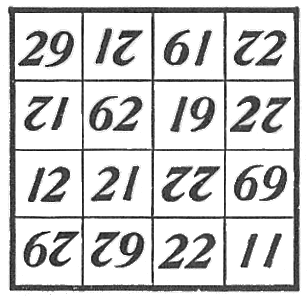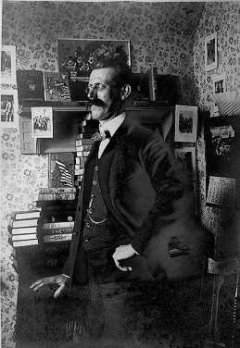- Connecticut didn’t ratify the Bill of Rights until 1939.
- Can one pity a fictional character?
- 64550 = (64 – 5) × 50
- BILLOWY is in alphabetical order, WRONGED in reverse.
- “The essence of chess is thinking about the essence of chess.” — David Bronstein
Author: Greg Ross
Rules are Rules
Indiana had a sumptuary law prohibiting the smoking of cigarettes, and a showman was exhibiting a trick chimpanzee in a country town in the vicinity of South Bend. One of the tricks of this animal was to smoke a cigarette, for which he was arrested and brought before a justice of the peace. His keeper pleaded that the animal did not know that he was violating the law, but the justice solemnly replied that ignorance of the law excuses no one, and the chimpanzee was fined five dollars which his keeper paid.
— American Law Review, January-February 1920
Sentences as Names
According to the American Mercury, a candidate for the postmastership at Oceana, W.Va., in 1954 was named Please Wright.
Elsdon C. Smith, in The Story of Our Names (1970), reports that a Chinese laundryman in Thomasville, Ga., was named I Will Sing; that Chicago was home to one Christmas Hurts; and that Mr. and Mrs. James A. Buck of Clear Lake, Iowa, named their daughter Helen May.
Victor Fell Yellin taught music composition at New York University in 1961.
Smith notes that a Mr. and Mrs. Ira W. Ready of Nebraska named their son Ira Maynard; he used his initials only, as did his uncles, B. Ready and R.U. Ready.
Assembly Dissembled

In order to hide it from Japanese bombers during World War II, Lockheed covered its entire Burbank, Calif., manufacturing plant with a camouflage net of chicken wire, poles and cables, feathers, and tar. From the air it looked like another residential section of Burbank, complete with trees, roads, sidewalks, and houses:

“It was an engineering marvel,” reported Gil Cefaratt in his history of the company, “but when it rained, [engineer Richard P.] DeGrey remembers the odor of millions of wet chicken feathers almost made work impossible for a couple of days.”
Presto Chango

From Samuel Isaac Jones, Mathematical Wrinkles (1929), a magic square with a twist:
“It will be observed that this square when turned upside down is still magic.”
Illiterate Epitaphs
Gertrude Walker died in 1893 at age 4 and lies in Lt. John Walker Cemetery near White Horn, Tenn. Her gravestone reads:
GONE TO BE AN ANGLE
John Young, who died in 1836, lies in St. Andrew’s churchyard in Staten Island, New York. His reads:
THOSE THAT KNEW HIM BEST DEPLORED HIM MOST
The epitaph of James Ewins of East Derry, N.H., reads:
MY GLASS IS RUM
The stonecutter cut an M in place of an N.
(From Charles Langworthy Wallis, Stories on Stone, 1954)
The Book Factory

The Hardy Boys, Nancy Drew, the Bobbsey Twins, and Tom Swift were all the product of one man, Edward Stratemeyer, a New Jersey author who wrote more than 1,300 books and eventually founded a syndicate of ghostwriters who pounded out juvenile mysteries based on his instructions.
Stratemeyer conceived the syndicate when his Rover Boys series proved so popular that he could not keep up with the demand for more books. He corralled a stable of hungry young writers, and in 1910 they were producing 10 new series annually. Each writer earned $50 to $250 for a manuscript he could produce in a month, working with characters and plot devised by Stratemeyer. Stratemeyer would review each completed manuscript for consistency and publish it under a pseudonym that he owned — Franklin W. Dixon, Carolyn Keene, Laura Lee Hope, Victor Appleton. Each book in a series mentioned the thrilling earlier volumes and foreshadowed the next book. The formula worked so well that when Stratemeyer died in 1930 his daughter continued the business; when she died in 1982 the syndicate was selling more than 2 million books a year.
This sounds cynical, but it worked because Stratemeyer had a sympathetic understanding of what young readers wanted. “The trouble is that very few adults get next to the heart of a boy when choosing something for him to read,” Stratemeyer wrote to a publisher in 1901. “A wide awake lad has no patience with that which is namby-pamby, or with that which he puts down as a ‘study book’ in disguise. He demands real flesh and blood heroes who do something.”
In a Word
polyhistor
n. a person of wide learning
Fatal Attraction
You have two straight iron bars that look the same. One is a magnet and one is not. How can you tell which is which only by touching them together?
Presto

In 1880 a man calling himself Smith opened an office and a bank account in London and purchased stationery reading “Henderson & Co., Ship Brokers.” Later that year another man approached a Glasgow chandler to order a large quantity of stores — he explained that Smith had chartered the steamer Ferret for a Mediterranean cruise. Henderson & Co. and the bank vouched for Smith, so the chandler filled the order.
The ship steamed to Cardiff, where it picked up Smith and a crew of strangers. On Nov. 11 it sailed through the Strait of Gilbraltar, showing its number, and then vanished. When some of the ship’s casks were found floating in the Mediterranean, the underwriters paid for a total loss.
A water policeman in Queenscliff, Australia, happened to be reading about this in a Glasgow newspaper on April 19 when he noticed the arrival of a steamer strangely similar to the Ferret. The India‘s hull was black, its boats white, and its funnel red, but the resemblance was otherwise striking. He notified the authorities, who seized the ship, where they noted that the Ferret‘s official numbers had been chipped off the hatch.
The ensuing investigation showed that after passing Gibraltar, the criminals had repainted the steamer, tossed the casks overboard, covered their lights and stole back through the strait, whence they had made for Cape Town and then for Australia.
Two of the pirates served seven years’ hard labor and the third three and a half years. “But for the copy of the Scotch paper falling into the hands of the Queenscliff policeman,” recalled The Age in 1930, “the identity of the vessel would probably never have been discovered.”
